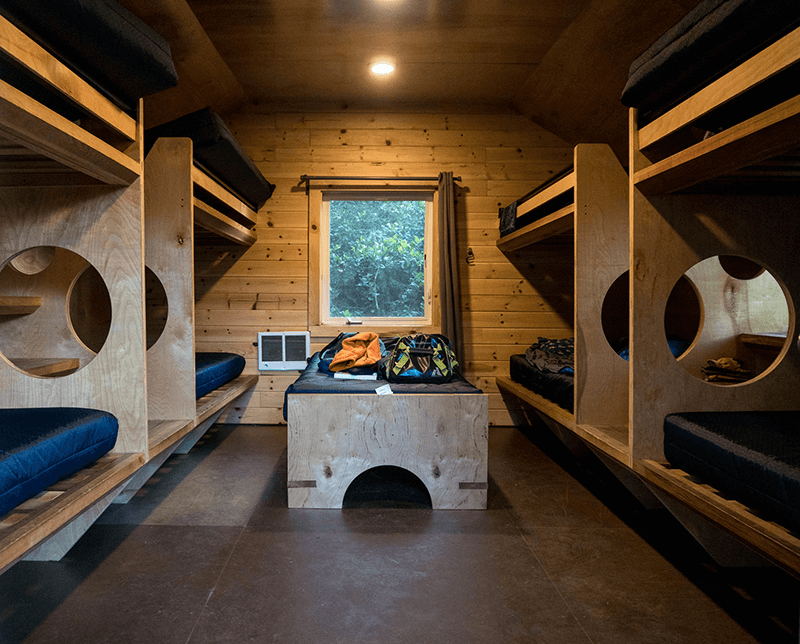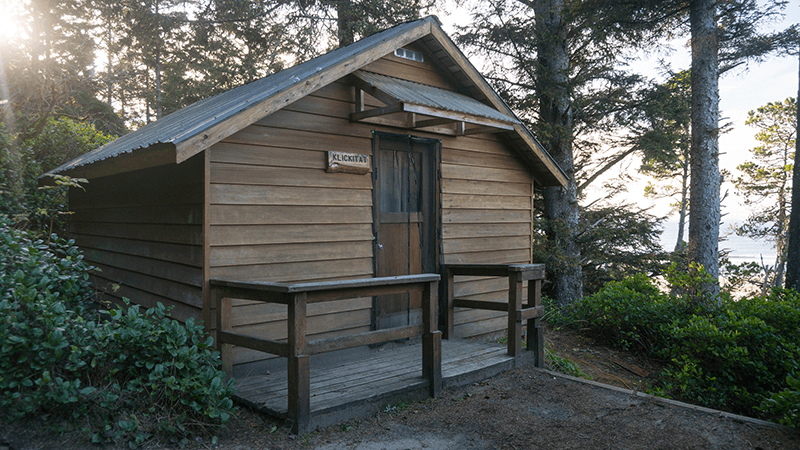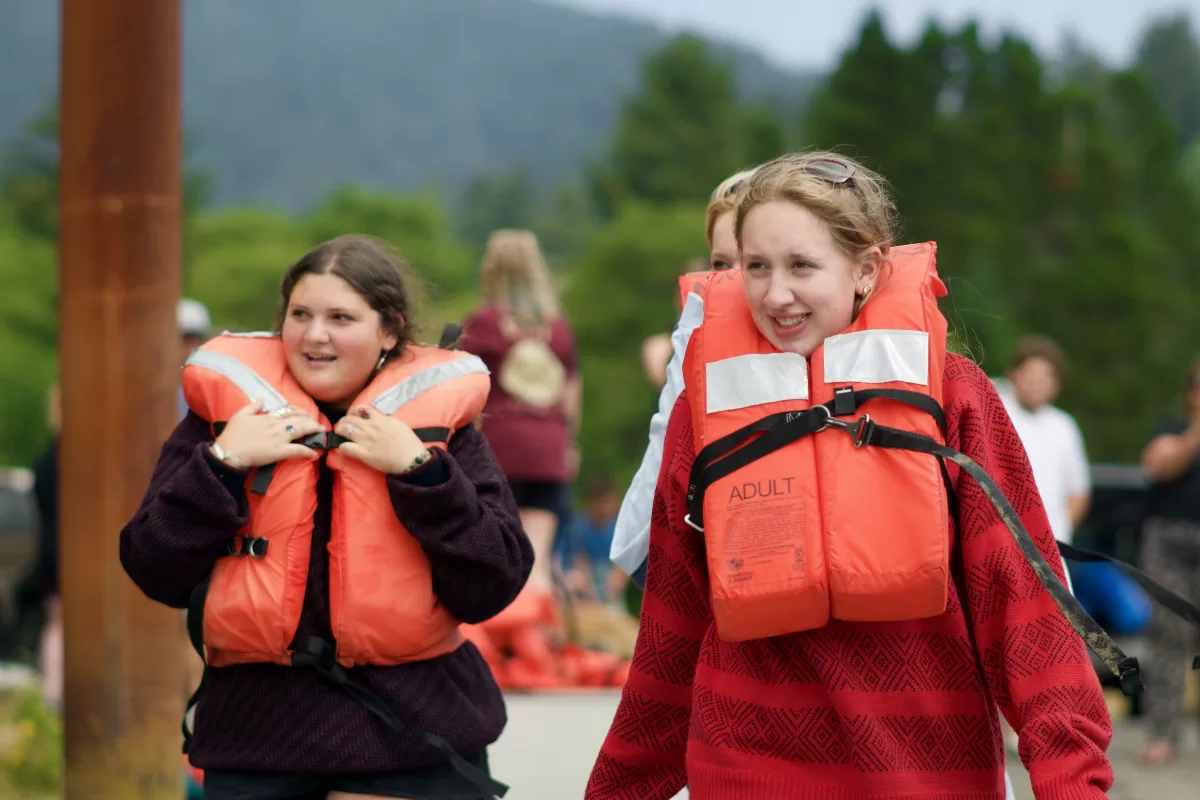Many of the appliances, systems, and vehicles we use at Westwind require energy to operate. While there is no doubt that these resources are needed to operate Westwind, wherever possible, we work to minimize the energy we consume. Where we can’t reduce our energy usage, we look for solutions to replace our energy usage with renewable sources.
Cabins
We are in the process of remodeling our camper cabins. So far, we have completed all Alpine and Highlands cabins and Hidel. During these remodels, we have implemented several energy-saving features into our cabins. Isolating the walls allowed us to remove old 4000-watt heaters and replace them with smaller, 1500-watt heaters. Additionally, insolation saves more residual heat, requiring less use of the heaters. The addition of thermostats allows for more accurate heating and reduces waste. Double-paned windows keep more heat in. Not only do these changes reduce our impact on the Earth, but they also provide a more comfortable night’s sleep.


Bus
Many of Westwind’s visitors come from the Willamette Valley and beyond. This means several hours or more of travel to reach our shores. The impact of individual cars making this journey can add up quickly. To help reduce this impact, Westwind offers busses for each summer camp session. In 2023 alone, almost half of youth campers took the bus. By consolidating these trips, we removed nearly 800 car trips to and from Westwind and saved close to 25 Metric Tons of CO2 from entering the atmosphere.

Replacements
We replaced light bulbs with energy-efficient LEDs. Not only do these bulbs save energy, they also last longer, reducing the amount of waste we produce. In addition, renovations to our Friar Tuck Laundry Room included new energy-efficient washers and dryers. These machines use less electricity and water than our old machines and reduce our overall energy usage.
We recognize that these efforts are relatively small in terms of the overall global impact, but we want to highlight that even small choices can add up over time. Conserving our natural world is not a single choice or project but the sum of the many choices we can make every time there is an opportunity to reduce our consumption of natural resources.
